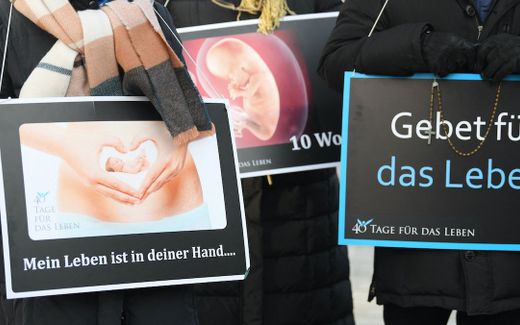WHO's new abortion guidelines cause debate in Scandinavia

Photo Flickr Commons
Northern Europe
In several Scandinavian countries, various organisations debate the abortion liberalisation advice from the World Health Organisation. “It is the wrong tool.”
The WHO advises removing all deadlines for performing abortion procedures and also thinks any form of mandatory medical advice is necessary. The organisation justifies the new guidelines because regulating abortion can be detrimental to women’s health.
However, the Norwegian pro-life organisation Menneskeverd (Human Dignity) thinks it is incomprehensible that the WHO has gone this far. According to the pro-life organisation, the WHO “completely sets aside the fetus’s rights, and we believe this is the wrong way to go.” Maria Selbekk and Kristin Rudstaden write this on behalf of the organisation in an op-ed in the Christian Norwegian daily Dagen. “A pregnancy always consists of two parties who sometimes have conflicting interests. This must be resolved through legislation, not through removing all types of political guidelines for abortion, as recommended by the WHO.”
Maria Selbekk, an information manager at Menneskeverd, further states in an interview with Dagen that it seems as if the WHO in the new guidelines only deals with abortion as a solution to various societal problems. “In combination with zero ethical reflection, the guidelines lose credibility.”
Dangerous
The Sex and Politics organisation, a Norwegian NGO that focuses on sexual and reproductive health, thinks Menneskeverd is reading the WHO statements “selectively”. It reacts in a Dagen op-ed to the statements of Menneskeverd. According to the NGO, the guidelines do include how the pregnant woman should be met and supported.
According to the NGO, the WHO guidelines are only there to warn against unregulated rights for freedom of conscience. “The WHO recognises the freedom of conscience of healthcare professionals as a human right.” As an example, the NGO uses South Africa. There, “mortality from abortion was reduced by 90 per cent when the country received a self-determined abortion in the mid-1990s. But now, the number of deaths from abortion complications is increasing because many health professionals are reserving themselves, and there are no good systems that ensure access to safe, legal abortion services for everyone who needs it. Thus, pregnant women resort to dangerous abortions again.”
Extreme
According to Danish observers, things are not as extreme as they appear at first sight. Øjvind Lidegaard, professor of gynaecology and obstetrics at Rigshospitalet and the University of Copenhagen, believes that the new recommendations from the World Health Organization “are basically sensible”. According to him, they do not mean that healthy fetuses can be aborted until birth. He says so in the Christian Danish daily Kristeligt Dagblad.
Chief Physician Klaus Peder Klausen, chairman of the Danish Medical Association’s ethics committee, does not believe that the WHO’s announcements are directed at Denmark. “The announcement must be seen in the light of the fact that in several countries and states in the United States, it is not possible to have an abortion at all or that the time limit is so low that the woman can barely detect that she is pregnant. I can not imagine the WHO thinking that abortions of a fully viable child should be performed right up to the day before a planned birth. It is more of a signal to the wider world than to countries like Denmark.”
Related Articles






